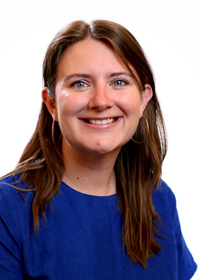
Practicum Experience(s)
Pacific Northwest National Laboratory (2024)
Summary of Research
Water quality in the San Francisco Bay Delta affects regional water resources, ecosystem health, and quality of life for any of the two million people who interact with the Delta or call its shores home. However, water management in the Delta has become a heavily politicized issue, as large-scale water withdrawal for agriculture and state water projects often comes at the cost of ecosystem protection measures.
The Delta receives large inputs of anthropogenic nutrients from wastewater treatment plants which result in elevated dissolved inorganic nitrogen levels (Novick et al., 2015). This nutrient-enriched status places the Delta at high risk for algal blooms (Paerl, 2009; Dahm et al., 2016), including risk for bloom events with toxic, or harmful algal species (commonly referred to as harmful algal blooms, or HAB events). These harmful algal blooms threaten public health and endanger the potability of the water supply. Furthermore, climate change, reduced sediment load, and increased nutrient delivery have accelerated algal bloom activity, resulting in increased harmful algal bloom events (Lehman et al., 2017).
My PhD research will focus on using numerical models to investigate the specific mechanisms that precipitate harmful algal blooms, which likely involves a "goldilocks zone" of wind-driven mixing, tidal forcing, river outflow, nutrient supply, and temperature. Better understanding what conditions allow Microcystis (a harmful algal species) to dominate over "beneficial algal species" (diatoms) will then be used to inform a prediction framework, providing water managers with much-needed visibility of where (and when) harmful algal blooms are likely to occur.
Annual Program Review Abstracts
Publications
Ylla Arbós, C., Blom, A., White, S.R., Patzwahl, R. and Schielen, R.M.J., 2024. Largeâ€scale channel response to erosionâ€control measures. Water Resources Research, 60(3), p.e2023WR036603.
S.R. White, P. Mugunthan, A.T. King, F. Karimpour, T.E.C. Kraus, E.B. Stumpner, B.A. Bergamaschi, D.B. Senn. "Delta-Suisun Biogeochemical Model: Calibration and Validation (WY2016, WY2011)." San Francisco Estuary Institute. Richmond, CA. September 2021.
S.R. White, A. King, F. Karimpour, P. Mugunthan, D. Senn. "Nutrients in the Northern San Francisco Estuary: Transport, Cycling, and Forecasted Changes after Nutrient Load Reductions." San Francisco Estuary Institute. Richmond, CA. March 2021.
F. Karimpour, S.R. White, A. King, P. Mugunthan, D. Senn. "Delta Biogeochemical Model Water Year 2016: Progress Update." San Francisco Estuary Institute. Richmond, CA. December 2019.
Awards
Early Career Award, 2025. Interagency Ecological Program.
Berkeley Fellowship, 2021. Two-year fellowship for top incoming PhD students.
Firestone Medal, 2019. Given to top 10% of honors theses at Stanford.
Fulbright Fellowship, 2019-2020. Flood Management-NAF Fulbright Fellow.
1st place, Creative Nonfiction Prize 2017. Stanford's annual award for best creative nonfiction essay written that year.
Summer Undergraduate Research Fellowship, 2017 & 2018.
